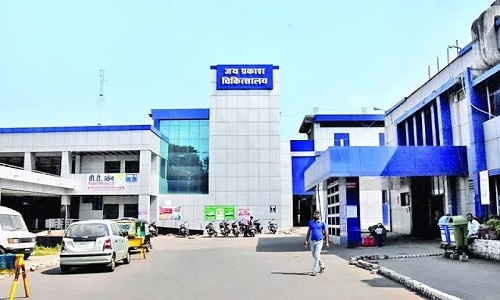Controversy erupts over alleged expired medicines
| Date :10-May-2024 |

Staff Reporter
In a startling revelation, it has been uncovered that several medicines intended for patients at the Jai Prakash District Hospital in the State capital, have been allowed to expire and stored away in the hospital’s medicine store, despite of the shortage of medicines reported. The Madhya Pradesh Human Rights Commission (MPHRC) has intervened in response to these alarming revelations at the JP Hospital. The commission’s action comes in the wake of various reports regarding the expiration and secretive disposal of medicines meant for patients. According to the Commission, despite the urgent need for these medications by patients, the medicines were kept unused which eventually expired within the hospital premises. This negligence has led to significant challenges for patients who rely on these medicines for their treatment. The issue of medicine shortage has long plagued the hospital, leaving many patients in dire situations due to the unavailability of essential treatments. Shockingly, while patients reportedly suffered due to the lack of medication, a stockpile of expired medicines remained untouched within the hospital’s storage facilities, as per the information.
Even more concerning is the revelation that hospital management has allegedly devised plans to clandestinely dispose of these expired medicines, effectively concealing their negligence from public scrutiny. This attempt to sweep the matter under the rug raises serious questions about the transparency and accountability of the hospital administration, as per the human rights body. In response to these grave allegations, the State Human Rights Commission (MPHRC) has intervened, directing the Director of Health Services/Medical Education, Madhya Pradesh, to investigate the matter thoroughly. A comprehensive report has been requested from the Government Directorate in Bhopal within a strict timeline of three weeks, detailing the actions taken in response to this grave issue emerged at the health institution. However in a conversation with ‘The Hitavada’ Dr Rakesh Shrivastava, Civil Surgeon at JP Hospital shared, “Till now we do not have any information about Human Rights Commission cognizance, whenever we will receive the information we will act accordingly.”
“Additionally, we are investigating the matter thoroughly. The concerned doctor of medicine store in charge has been appointed to investigate the matter. The employee involved in the commotion has also complaint about alleged violence during the incident. So, we are investigating each and every detail.”, Dr Shrivastava expressed when asked about the steps hospital administration has taken to investigate the matter. According to the various reports, the scandal surfaced at 1250 (JP) Hospital a few days ago, when certain individuals were caught on video destroying expired medicines clandestinely. Upon discovering the illicit activity, some employees reportedly confined a youth to a room after he attempted to document the incident. The youth managed to call emergency services (Dial 100), leading to police intervention and his subsequent release.
Furthermore, following the exposure of the expired medicine disposal scandal, hospital management attempted to justify their actions by claiming that the medicines were being sorted for disposal, as per the reports. According to the reports emerged till now on this matter, it has come to light that approximately 50 lakh rupees worth of medicines are stored in two separate rooms within the hospital premises, with a significant portion of them being supplied by the Health Corporation. Unfortunately, a substantial quantity of these medicines has expired, including bottles of glucose (such as DNS, Dextrose), syrup bottles, tablets, which were found either empty or discarded into bins or water. Even vital medications like zinc sulfate syrup and various tablets were found to have expired in large quantities. Reportedly, the store in-charge, earlier revealed that the hospital stocks 514 types of essential medicines, out of which around 350 are used daily. However, medicines with lower demand often expire due to storage constraints.


